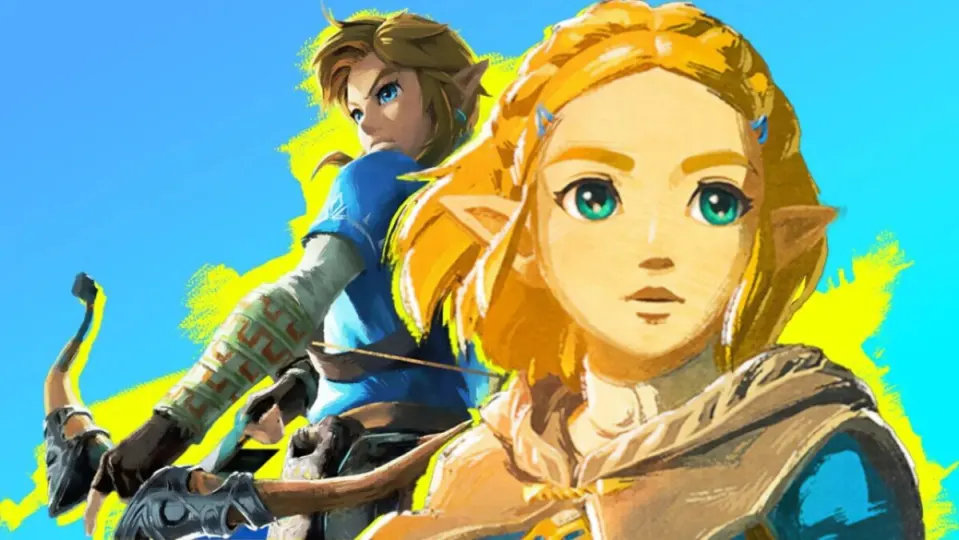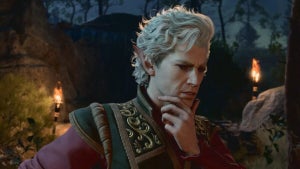If you stop anyone on the street right now and ask them “what comes to mind with the word ‘Nintendo’“, they will most likely say “Mario”. He’s right, since the plumber has been the most iconic figure of the Japanese brand for a long time, to such an extent that in some surveys he has even beaten Mickey Mouse himself in popularity (big words this).
Mario is the visible head and represents the affable, affectionate and kind tone of Shigeru Miyamoto‘s mind, but his adventurous, challenging and magical side is embodied in the Zelda saga. When the famous designer created Link’s adventure together with Takashi Tezuka, he surely did not expect that this title would become a saga that has been enchanting all players for more than 30 years. But the most relevant thing is not only that, but we can never stop thanking everything he has contributed to the video game as a medium.
When the first The Legend of Zelda was released in 1986, the series laid its conceptual foundations, those that have endured even to this day with The Legend of Zelda: Tears of the Kingdom. We are talking about a series of principles that are rooted to the ground such as an unknown world to explore, dungeons full of dangers to be overcome, puzzles to overcome to continue the adventure and an evil that never stops lurking around every corner.
Miyamoto and Tezuka had found a formula that worked wonders, an equation for which they had the solution. As time went on, it just needed to be better. Thanks to this, came deliveries like Zelda II: The Adventure of Link, The Legend of Zelda: A Link to the Past or the incredible The Legend of Zelda: Link’s Awakening. Although released later, they all started from the premises mentioned in the previous paragraph.
Zelda as a saga did not reinvent the wheel in video games, but it did know how to combine a multitude of different concepts found in different titles, put them in a shaker and shape them into a fun adventure where exploration, action, puzzles and great music formed a perfect cocktail. And that formula really set a stone for future games, which took it as a reference.
Ocarina, a turning point
Although Zelda has a multitude of relevant games, almost all Zelda lovers agree on one aspect: The Legend of Zelda: Ocarina of Time is one of the most important games in its history. The relevance of this Nintendo 64 game is beyond any doubt.
When Ocarina of Time arrived to the different markets, Nintendo had learned a lot when it came to making a 3D adventure for its Nintendo 64 thanks to Super Mario 64. With this acquired experience, the Zelda game for the console arrived with a lot of ease and good work. It was the first of all that could masterfully integrate a heavier narrative, something that was further enhanced with the arrival of Majora’s Mask later on.
All this was relevant, of course, but Ocarina of Time gave a real lesson when it came to creating dungeons, solving puzzles and, of course, integrating a combat system with enemy lock-on. Now it’s very common to press a button and have an enemy lock on, but the first game to do that was Ocarina of Time, a design element that was born, as Toru Osawa explained, from watching an attraction in a park.
Breath of the Wild on the horizon
We have not skipped Nintendo GameCube or Wii because we wanted to, but rather because we want to make the leap to Switch. The games of these two consoles were good, of course, some of them would enter a TOP, but it is that after these two consoles, Nintendo released Breath of the Wild.
It is impossible to conceive the open world in the current video game without The Legend of Zelda: Breath of the Wild. Again, it didn’t invent anything, but it did reframe everything to date to ask a question: what if the player truly explored without markers and owned the adventure?
In Breath of the Wild, the entire world is at your disposal and you choose how to approach the situation. Your world speaks for itself without the need to display countless icons. See that mountain over there in the distance? Well, you know where to go without needing to have a marker on you to tell you. Added to this was a lively, dynamic environment that shone on its own. Titles like Elden Ring clearly drink from Breath of the Wild, and we dare say that even the vast majority of current open worlds do too, to a greater or lesser extent.
Zelda has given too much to video gaming, so much that we couldn’t possibly put it all in one article. This is a 1,000-word love letter. Because in the end, no matter how much it has contributed, the most relevant thing is what it has given to the player in the form of joys and adventures, of life marks that will remain for the memory.


